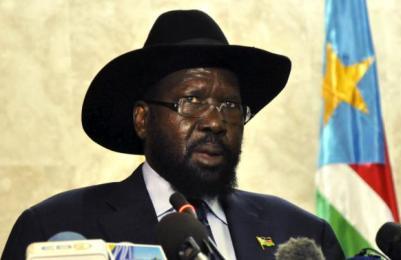President Kiir unilaterally appoints presidential advisers
May 5, 2016 (JUBA) – South Sudanese President, Salva Kiir, has on Wednesday evening unexpectedly issued a republican order announcing unilateral appointment of high profile ten-member presidential advisory team without consulting with the opposition factions, sparking denunciations and questions about motives behind the appointments.

The decree appointed all the 10 advisers from President Kiir’s group and none was from the other opposition factions such as the SPLM-IO led by the First Vice-President, Riek Machar, former detainees and other political parties.
Akot, who will be advising on military issues is a senior member of the SPLM and has served in various high profile assignments, including having been a minister of internal affairs and a state governor in the past.
The same decree also appointed former Central Equatoria state governor, Clement Wani Konga, as a presidential advisor for special affairs. It is unclear what his specific duties will entail.
Former deputy secretary general of the SPLM, Anne Itto, was also named as an advisor for agriculture and food security.
The secretary general of the Islamic council in the country, Tahir Bior, was named as an advisor for religious affairs.
The former government’s chief mediator during peace talks with the armed opposition, Nhial Deng Nhial, was appointed as a senior advisor and presidential envoy.
Tor Deng Mawien, a relative of the president and long-time political ally, was reappointed as an advisor for decentralization and intergovernmental linkages while Tut Kew Gatluak was reappointed as an advisor for security affairs.
Former minister of education, John Gai Yoh was named as an advisor for educational affairs,
Other presidential aides who were reappointed into their previous portfolios include Aggrey Tisa Sabuni as an economic affairs advisor and Lawrence Korbandy as the legal affairs advisor.
Observers are keen to point out that the latest developments represent an attempt by the president to preempt demands to share advisory team and to frustrate efforts to implement the peace agreement which he signed with armed opposition under the overall leadership of the First Vice-President, Riek Machar.
Others stress that the development depicts the intention of the president to assemble another shadow cabinet with whom he would be working instead of the ministers of the transitional government of national unity, given the nature of the assignment of the new presidential advisory team.
The peace agreement also makes no mention of advisers. Article 4.1 of Chapter I states the “Executive of the Transitional Government of National Unity shall comprise the President, the First Vice President, the Vice President, the Council of Ministers and the Deputy Ministers.”
Critics now say the appointments are therefore a clear violation of the peace agreement, describing the development as political ploy designed to make the work of the cabinet ministers from other parties more difficult.
Determining the number and appointment of advisers is one of the contentious issues the parties were yet to agree on.
(ST)
